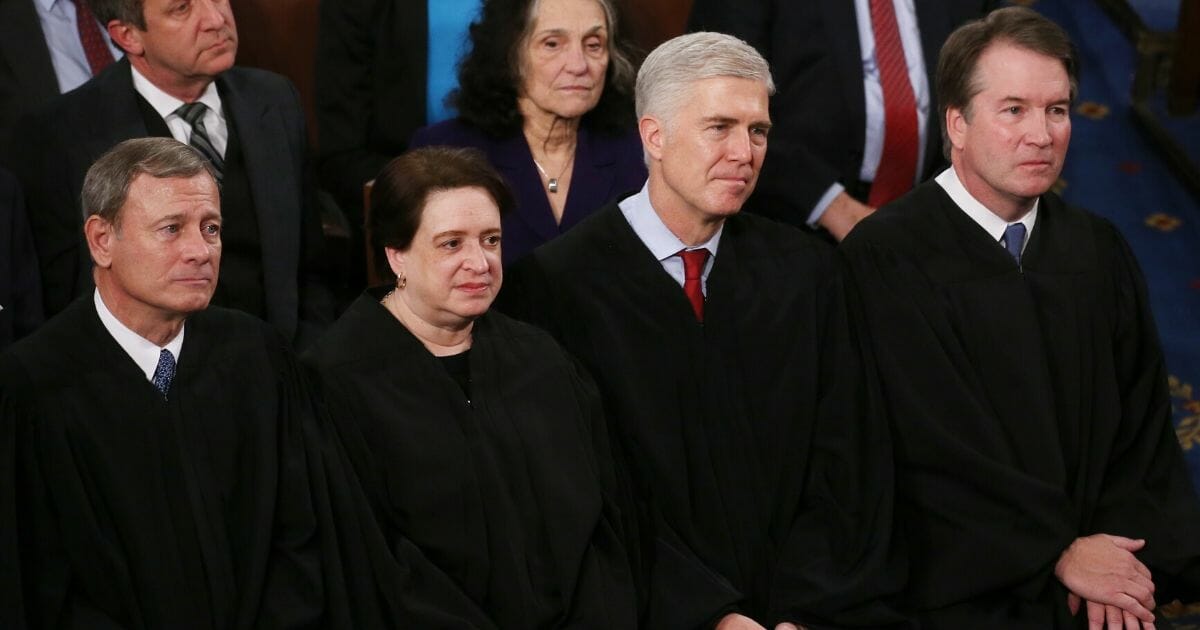
Supreme Court Upholds Death Sentence for Arizona Inmate Convicted of Murdering Two People
A sharply divided Supreme Court on Tuesday upheld the death sentence for an Arizona inmate who was convicted of killing two people in home burglaries nearly 30 years ago.
Justice Brett Kavanaugh, writing for the court’s conservative justices, rejected the arguments of inmate James Erin McKinney that he deserved a new sentencing hearing so that a jury can decide whether he should face death or life in prison.
McKinney was first sentenced to death by a judge for the 1991 killings of Christine Mertens and Jim McClain.
McKinney and his half brother, Charles Michael Hedlund, were both convicted of murder in the deaths of Mertens and McClain during a series of burglaries in metro Phoenix. Hedlund also is on death row and has asked the Supreme Court to review his death sentence on similar grounds.
Prosecutors said both men beat and stabbed Mertens during a struggle at her home and that McKinney pinned Mertens to the floor and shot her in the back of the head.
About two weeks later, prosecutors said McKinney and Hedlund ransacked McClain’s home during a burglary and that one of them fatally shot McClain as he slept.
McKinney’s lawyers argued that he suffered from abuse as a child. Court documents state that the Arizona courts “failed to properly consider” his “posttraumatic stress disorder” when he was sentenced to death.
18-1109 McKinney v. Arizona… by The Western Journal on Scribd
The court’s four liberal justices, Stephen Breyer, Sonia Sotomayor, Elena Kagan and Ruth Bader Ginsburg, all dissented.
Justice Ruth Bader Ginsburg wrote in dissent that she “would hold McKinney’s death sentences unconstitutional.”
“According to McKinney, appellate courts may no longer reweigh aggravating and mitigating circumstances in determining whether to uphold a death sentence. McKinney is incorrect,” Kavanaugh wrote.
The Supreme Court ruled in 2002 that juries, not judges, must impose death sentences. The court has also ruled that mitigating factors, including childhood deprivations, must be factored into sentencing decisions.
The justices had to decide whether McKinney should be able to take advantage of the ruling that requires juries to impose death sentences, even though the court ruled it does not typically apply to older cases.
They also had to determine whether the issue of McKinney’s past must be handled in a trial court or could be dealt with by the Arizona Supreme Court, which upheld his sentence in 2018 after it said it gave some weight to his childhood deprivations.
Kavanaugh said McKinney was not entitled to resentencing by a jury and that the Arizona high court review was sufficient.
The outcome could affect as many as 15 of Arizona’s 104 death row inmates.
Jordon Steiker, a law professor at the University of Texas who filed a friend-of-the-court brief supporting McKinney’s position, said he doesn’t think the McKinney decision will have much of an effect on cases outside of Arizona.
The Western Journal has reviewed this Associated Press story and may have altered it prior to publication to ensure that it meets our editorial standards.
Truth and Accuracy
We are committed to truth and accuracy in all of our journalism. Read our editorial standards.
Advertise with The Western Journal and reach millions of highly engaged readers, while supporting our work. Advertise Today.












